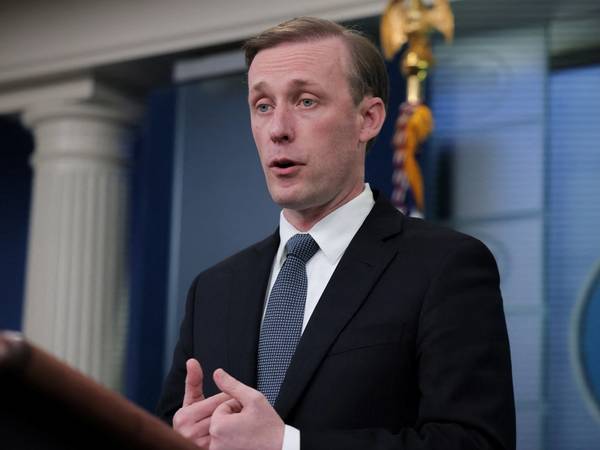US National Security advisor Jake Sullivan says Iran’s money in South Korea and elsewhere will remain frozen as long as a nuclear deal has not been reached.
“Our view is that the sanctions should be enforced,” Sullivan told reporters at a White House briefing Friday in response to questions about Washington’s position on $7 billion of Iranian funds frozen in South Korea and whether the issue would be addressed during President Joe Biden’s visit to South Korea.
Biden arrived in Seoul Friday and will meet with South Korea’s newly elected President Yoon Seok-youl.
“And as long as Iran continues to advance its nuclear program, we should be working with our allies and partners to ensure that we are maintaining the form of economic pressure on them to sharpen the choice to get them to ultimately to agree to what is a perfectly fair and reasonable deal on the table for them in Vienna,” Sullivan who is accompanying Biden in his trip to Korea said but declined to say if the issue of frozen funds would be on the agenda of the two presidents.
Talks in Vienna to restore the 2015 nuclear deal, Joint Comprehensive Plan of Action (JCPOA), have stalled since mid-March when diplomats returned to their capitals for consultations over disagreements. Major issues reportedly include Washington’s refusal to delist Iran’s Revolutionary Guards (IRGC) which the Trump administration designated as a ‘foreign terrorist organization’. Iran also insists on avenging the US killing of IRGC’s Qods Force Commander Ghasem (Qasem) Soleimani who was killed in Baghdad in 2020 in a US targeted drone attack.
In recent weeks, regional countries including Qatar, Oman, and Kuwait, all of which have very good relations with Washington, have reportedly tried to mediate between Iran and the United States.
So far there has been no breakthrough but the Emir of Qatar Tamim Al Thani, who visited Tehran last week and met with Iran’s Supreme Leader Ali Khamenei and President Ebrahim Raisi, at a press conference in Berlin Friday expressed hope that Tehran and Washington would reach an agreement, saying Doha is ready to help resolve the disagreements.
Most of Iran's official and semi-official media downplayed or completely excluded any mention of Qatar’s possible mediation in the nuclear talks and instead focused on reporting the Iranian leader’s and president's remarks about regional issues and Israel.
Oman which has a long record of mediation between Tehran and Washington as well as other world powers has also been working behind the scenes. Iranian media announced Saturday that Raisi will be visiting Muscat on Monday at the invitation of Sultan Haitham Al-Said.
The reports made no mention of any plans to discuss the nuclear standoff between Tehran and Washington in Muscat and only said the signing of some cooperation agreements and meetings with Omani economic officials will be on the agenda of Raisi’s one-day visit to the sultanate.
An Iranian diplomat who declined to be named told Faraz Daily economic news website on Friday that Tehran counts on Oman’s mediation more than any other country due to several decades of trust.
“[Facilitating] talks and more serious agreements between Iran and the US has usually been entrusted to the Omani mediators, meaning Iranian and American officials want this,” he said, adding that the major part of initial talks between Tehran and Washington that led to the conclusion of a nuclear agreement in 2015 were conducted through Omani mediators.
